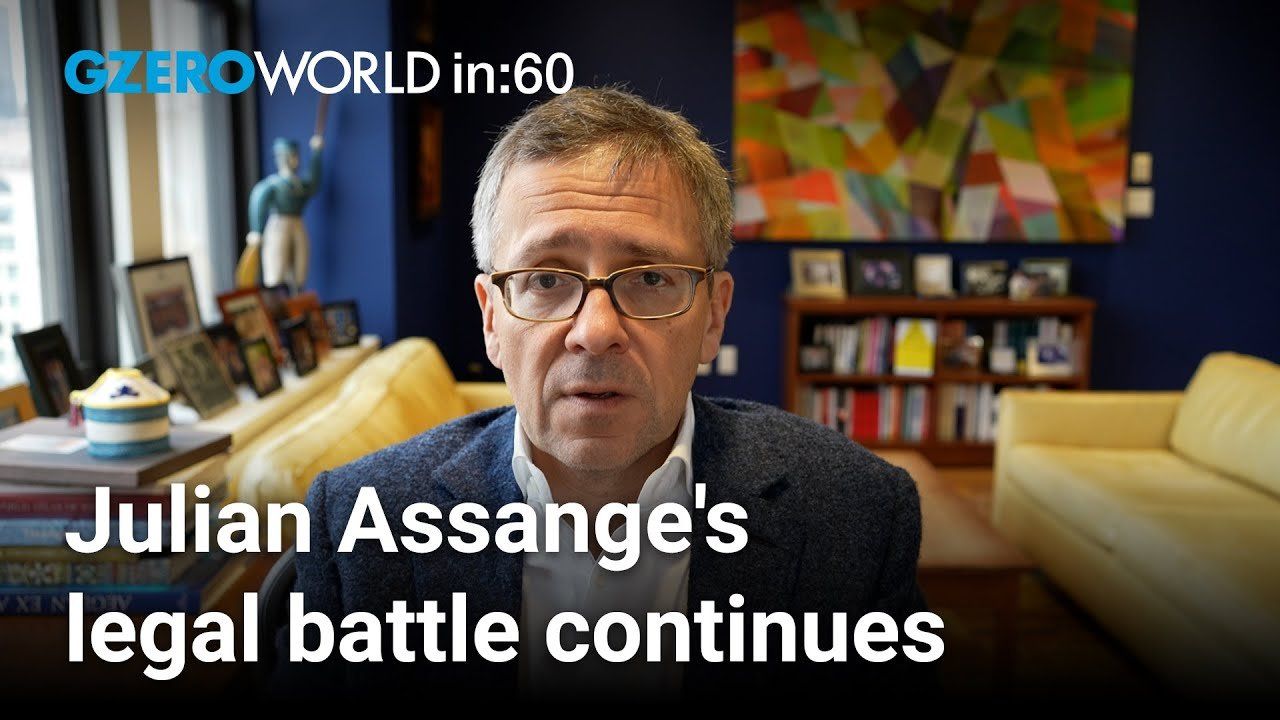Ian Bremmer shares his insights on global politics this week on World In :60.
What's left to sanction with Russia and have existing sanctions been effective?
There's very little left to sanction with Russia that the Americans and their allies want to sanction. I mean, you could try to cut off Russian oil exports to, say, India, but no one wants to do that because that would cause a global recession. Food, fertilizer, same thing. At the end of the day, the sanctions that the West can put on Russia without a massive impact to themselves and the world they've already put. But because Biden said there'd be hell to pay if anything happened to Navalny in jail and he's dead now, and it's pretty clear the Russians, the Kremlin killed him. That means they have to sound tough. But ultimately, the only thing that is changing Russian behavior is the provision of significant military support to the Ukrainians, and that is determined by US Congress going forward.
Is Israel preventing humanitarian aid from reaching Gaza?
Certainly that is the case, and they've been very reluctant to allow significant humanitarian aid to get into Gaza. Their view is that a lot of that aid would be taken by Hamas, and there's very limited capacity to stop Hamas from doing it. It's terrorist organization. Most of the rest of the world says, yeah, even if that's the case, you've got a couple of million civilians in Gaza whose homes have been destroyed, who've been displaced, that have no other way to live unless you provide them with support. And in very short order, the principal danger to civilians in Gaza will be humanitarian and will not be the war. That's how bad the humanitarian crisis is getting, even though the war fighting continues to go on.
Why is Julian Assange in the news today?
Well, because he is facing one of his last opportunities to avoid extradition to the United States. He is in the UK right now. He's wanted on almost two dozen criminal charges by the United States in regard to he and his organization putting out classified material and diplomatic cables over ten years ago. Those are serious crimes from the United States. But supporters of Assange are all about, look, this is, you know, putting truth to power and shining a light on massive human rights abuses. And if it wasn't for Assange, people wouldn't know about those abuses. It's kind of the same thing people have been saying about Snowden. There is a massive political debate that we can't finish in 180 seconds, but that's why Assange is in the news. We will see what the high court rules.
That’s it for me and I'll talk to you all real soon.
More For You
Mastercard Economic Institute's Outlook 2026 explores the forces redefining global business. Tariffs, technology, and transformation define an adaptive economy for the year ahead. Expect moderate growth amid easing inflation, evolving fiscal policies, and rapid AI adoption, driving productivity. Digital transformation for SMEs and shifts in trade and consumer behavior will shape strategies worldwide. Stay ahead with insights to help navigate complexity and seize emerging opportunities. Learn more here.
Most Popular
Despite a ceasefire in Gaza, Israel is still not letting foreign journalists in to independently verify what’s happening on the ground, CNN’s Clarissa Ward tells Ian Bremmer on GZERO World.
On Ask Ian, Ian Bremmer breaks down the steady escalation of US pressure on Venezuela and why direct military action is now a real possibility.
From civil conflicts to trade wars to the rise of new technologies, GZERO runs through the stories that have shaped this year in geopolitics.
